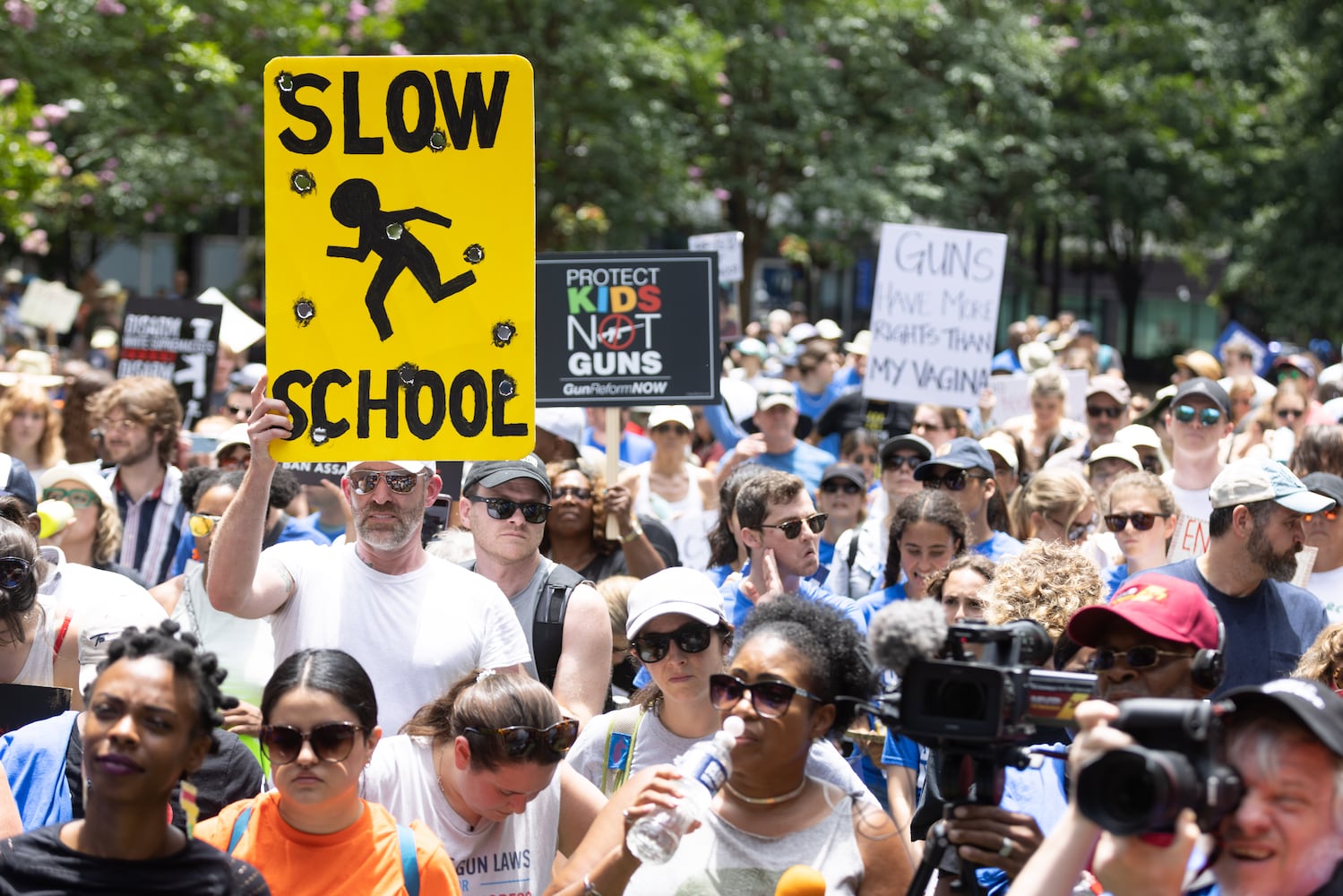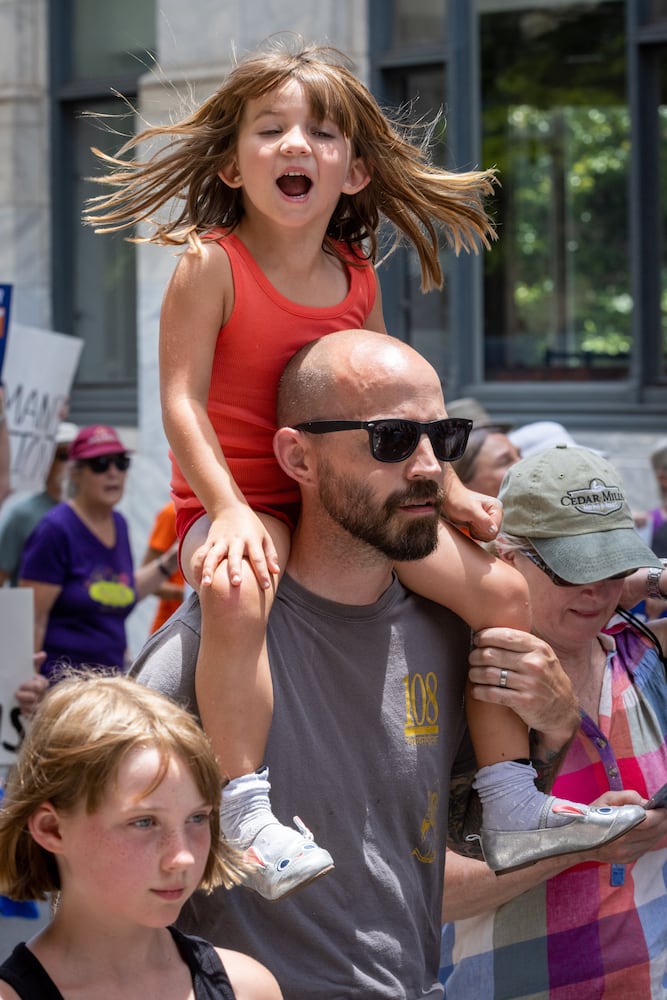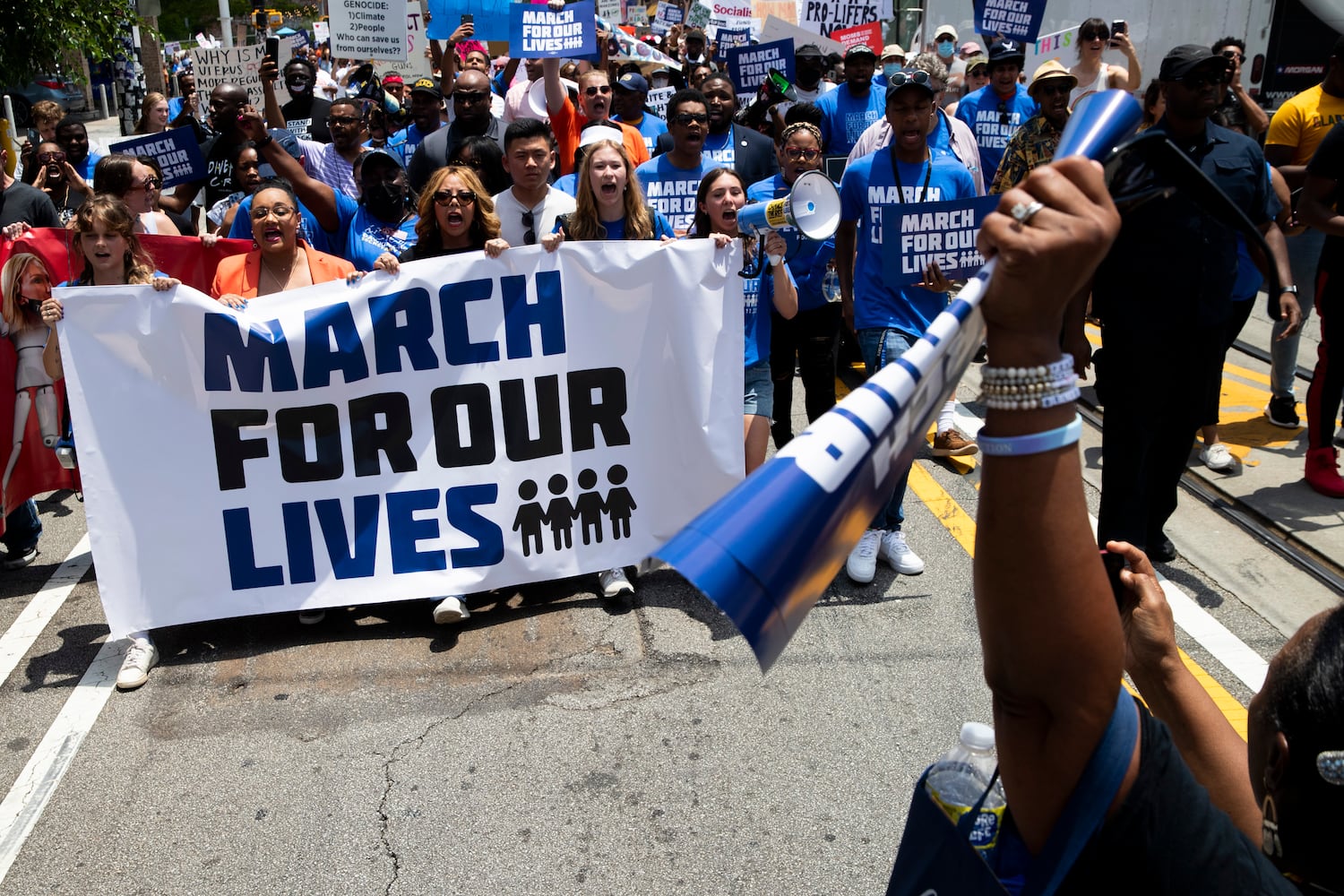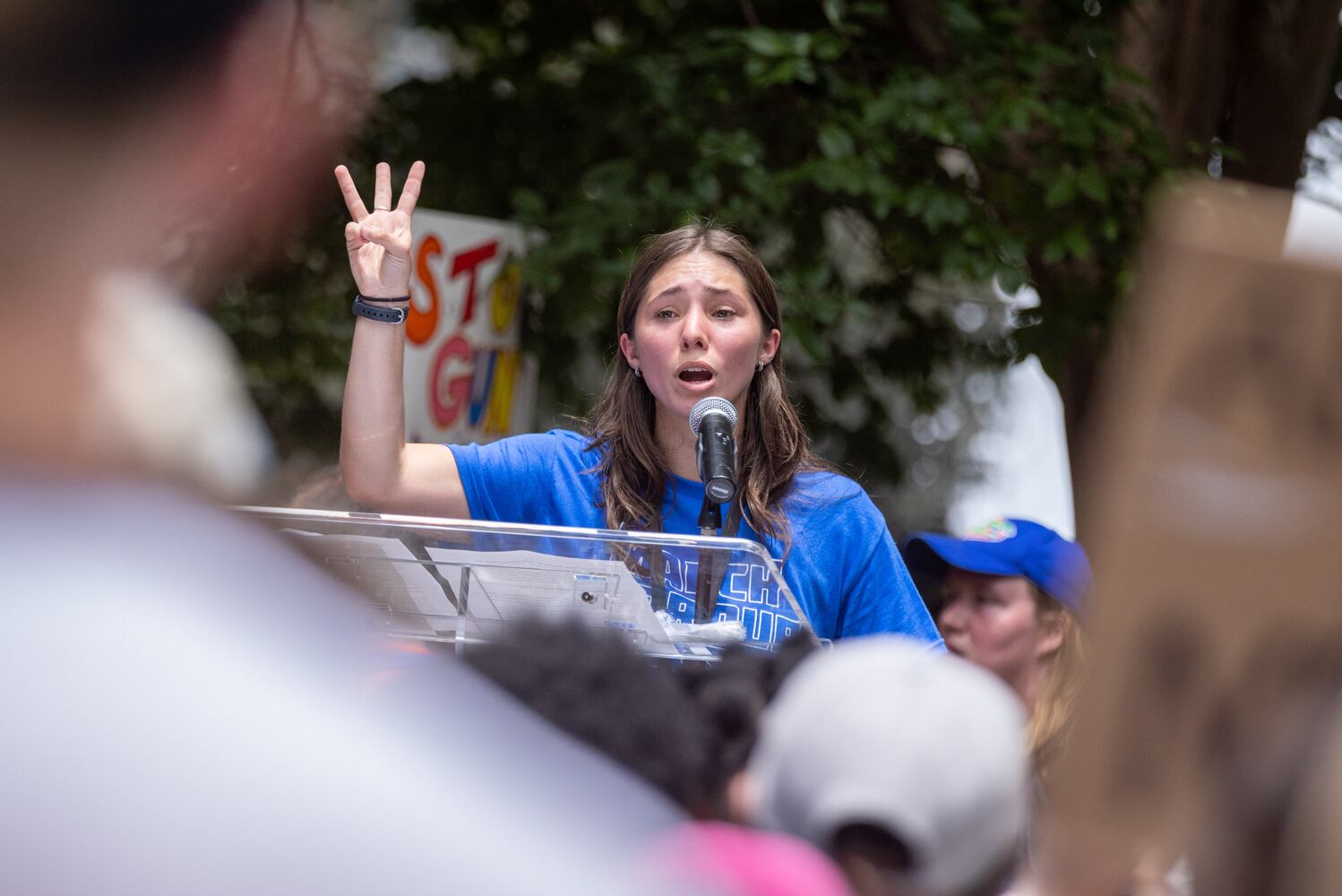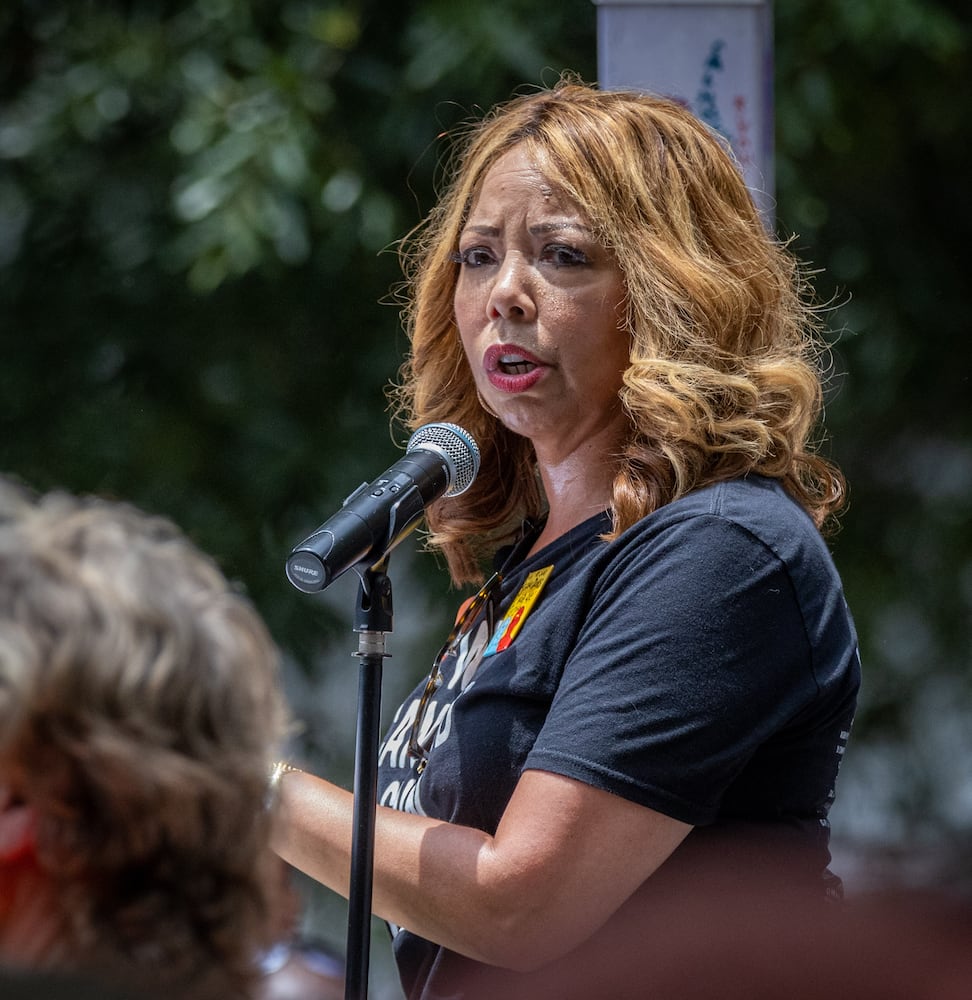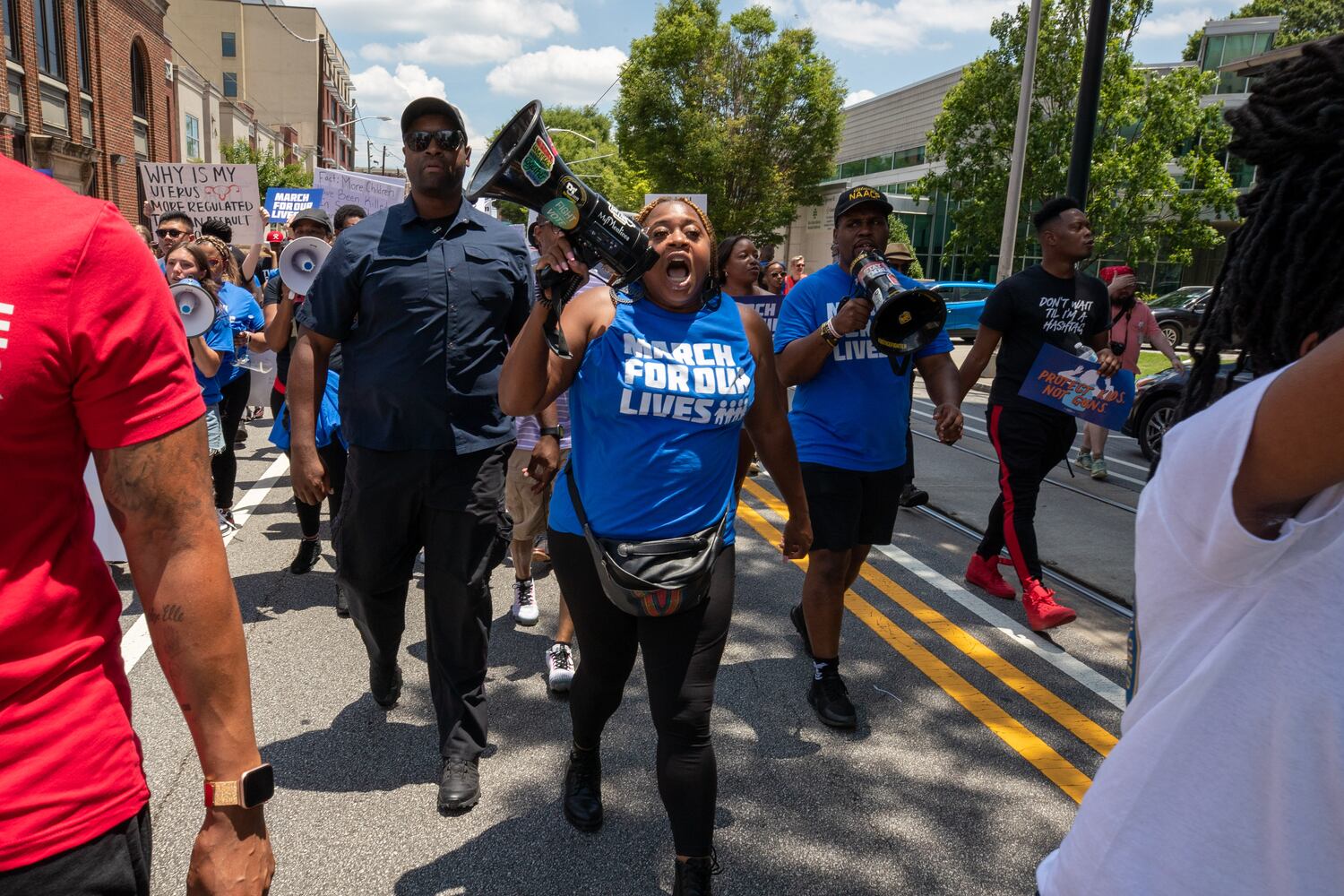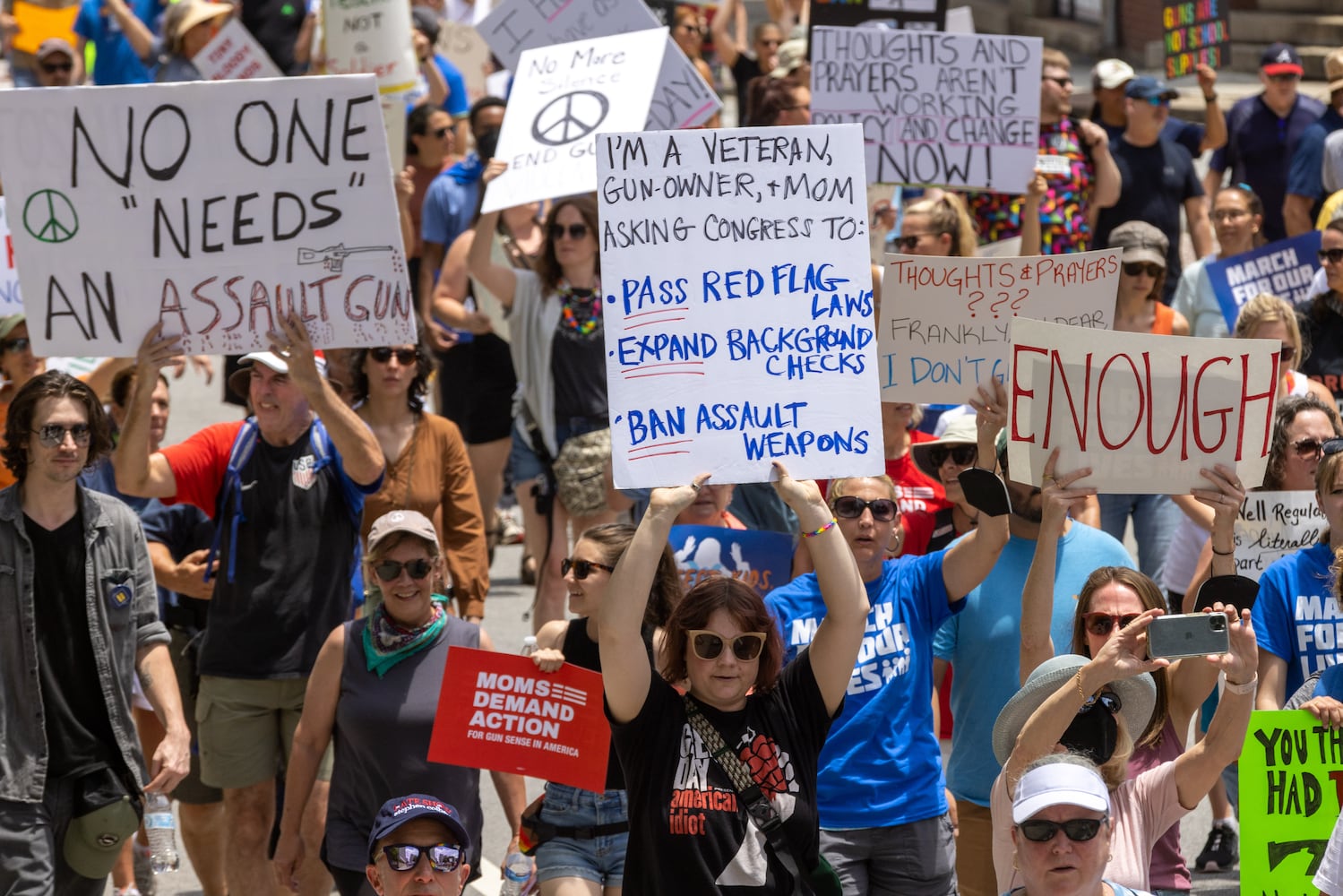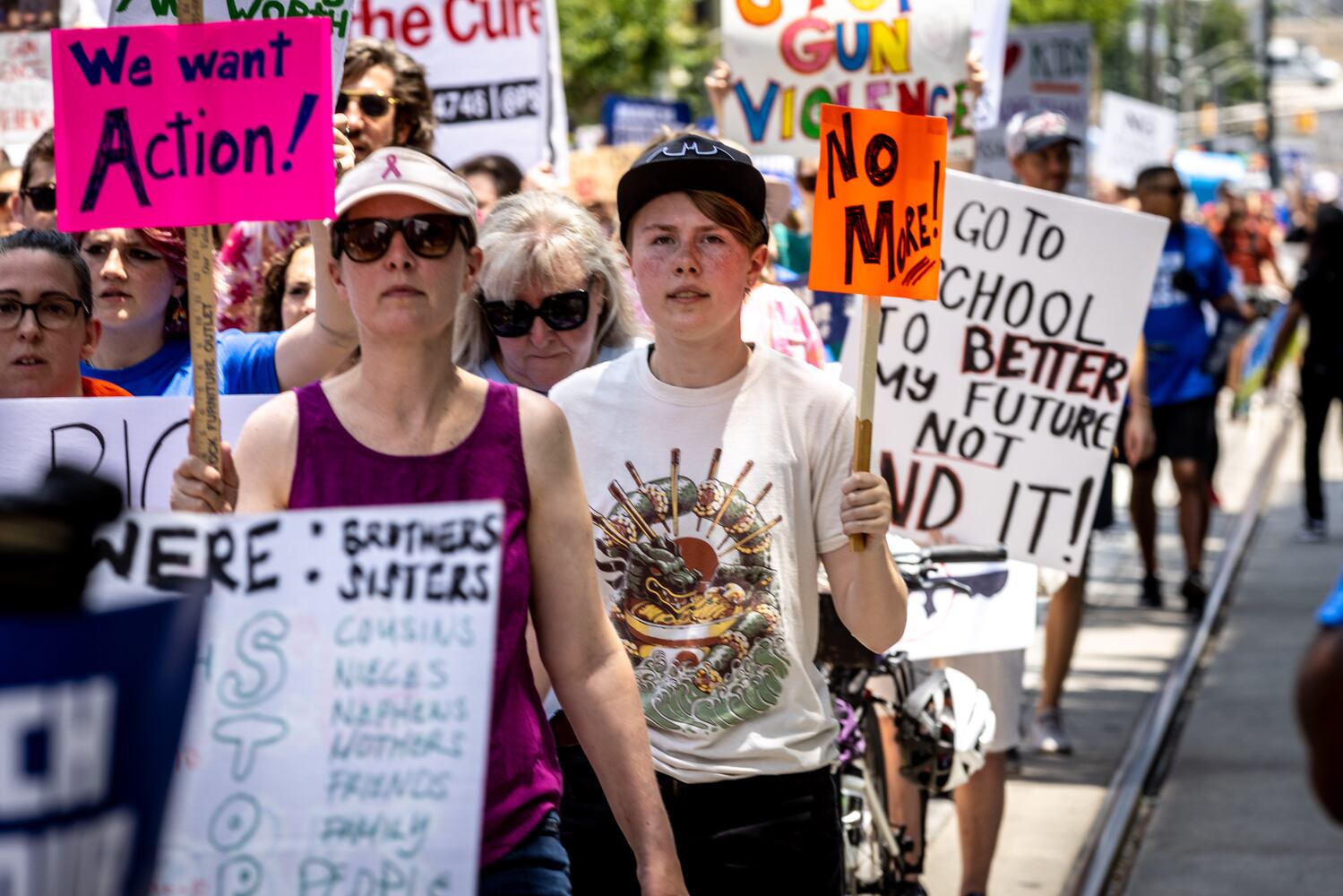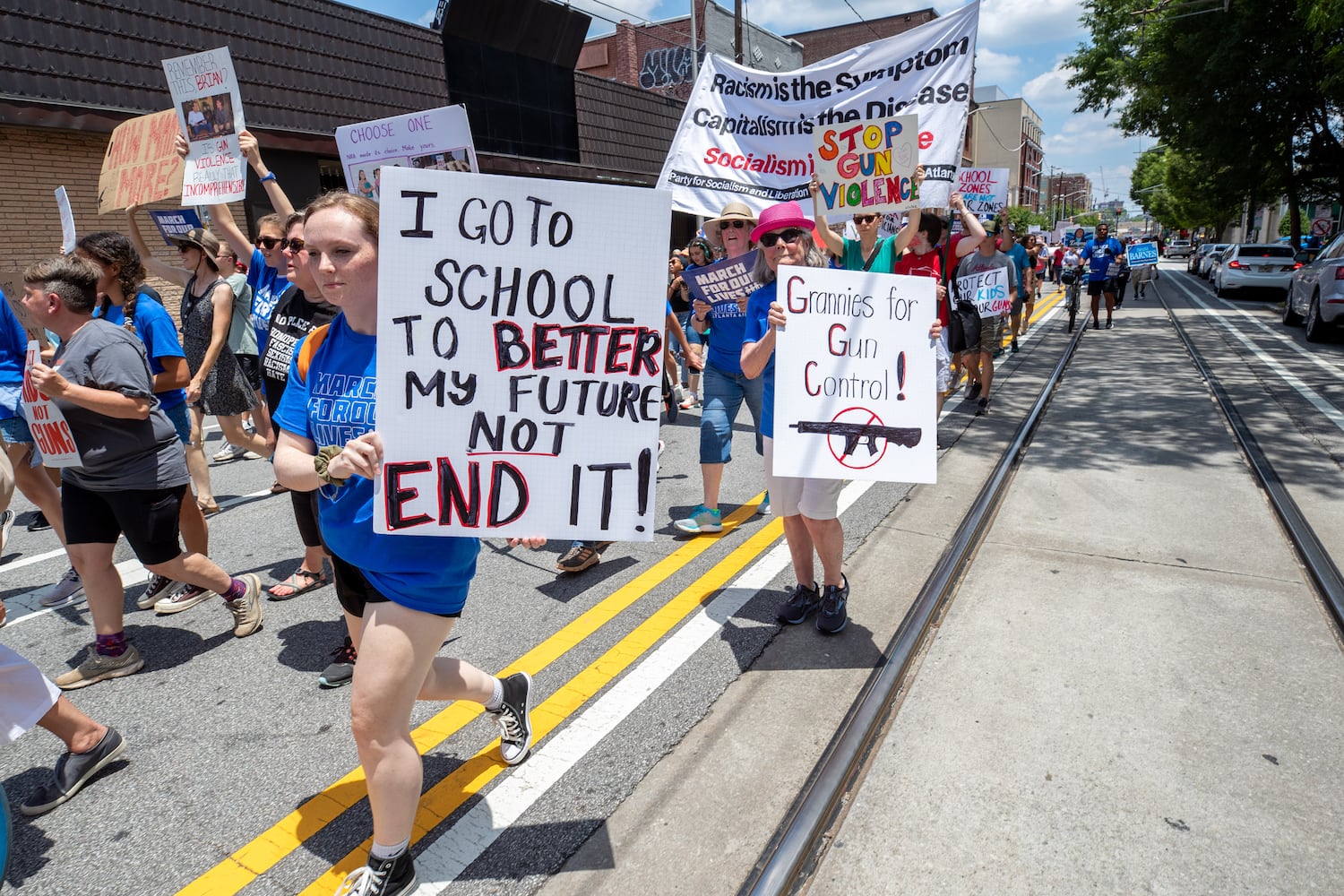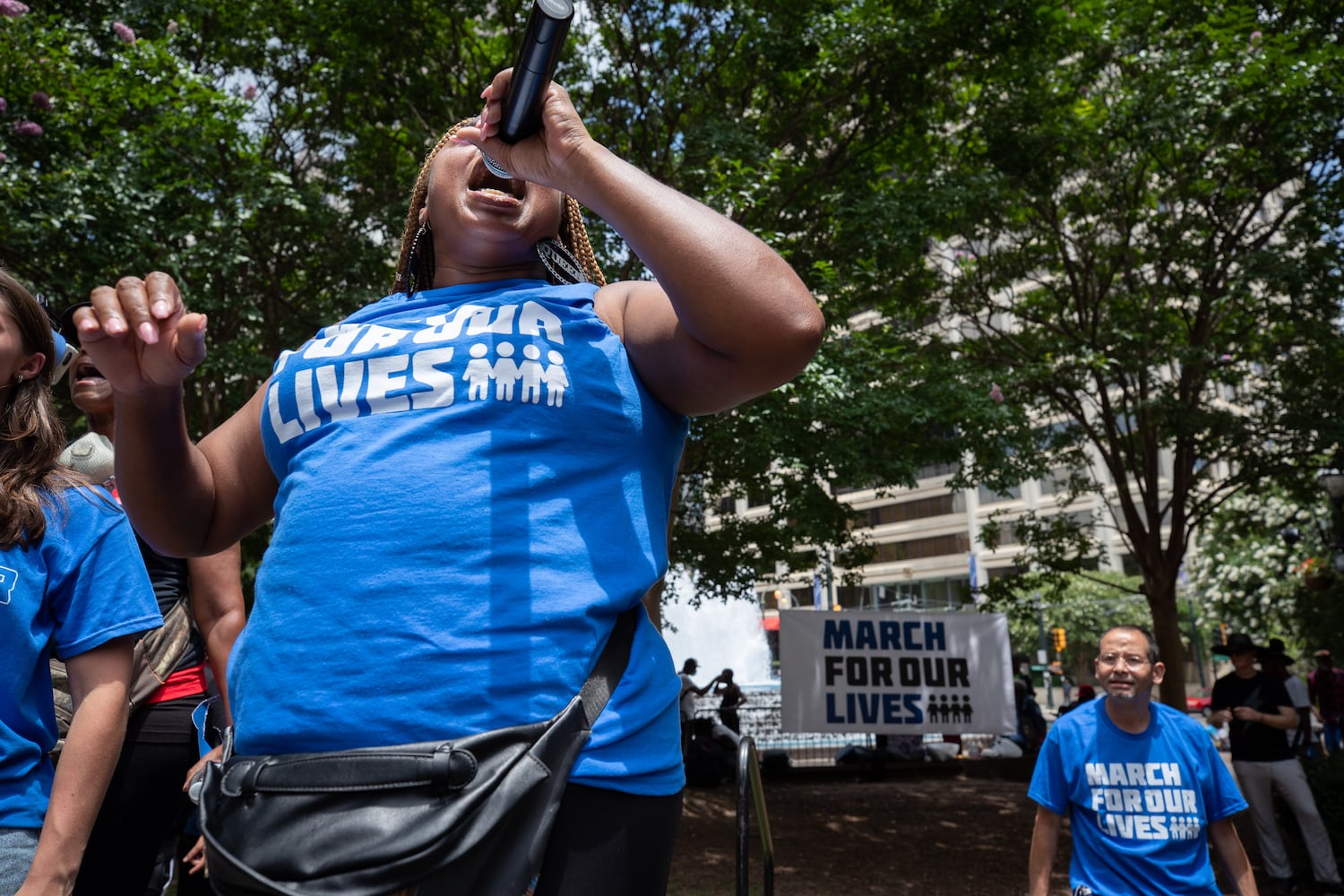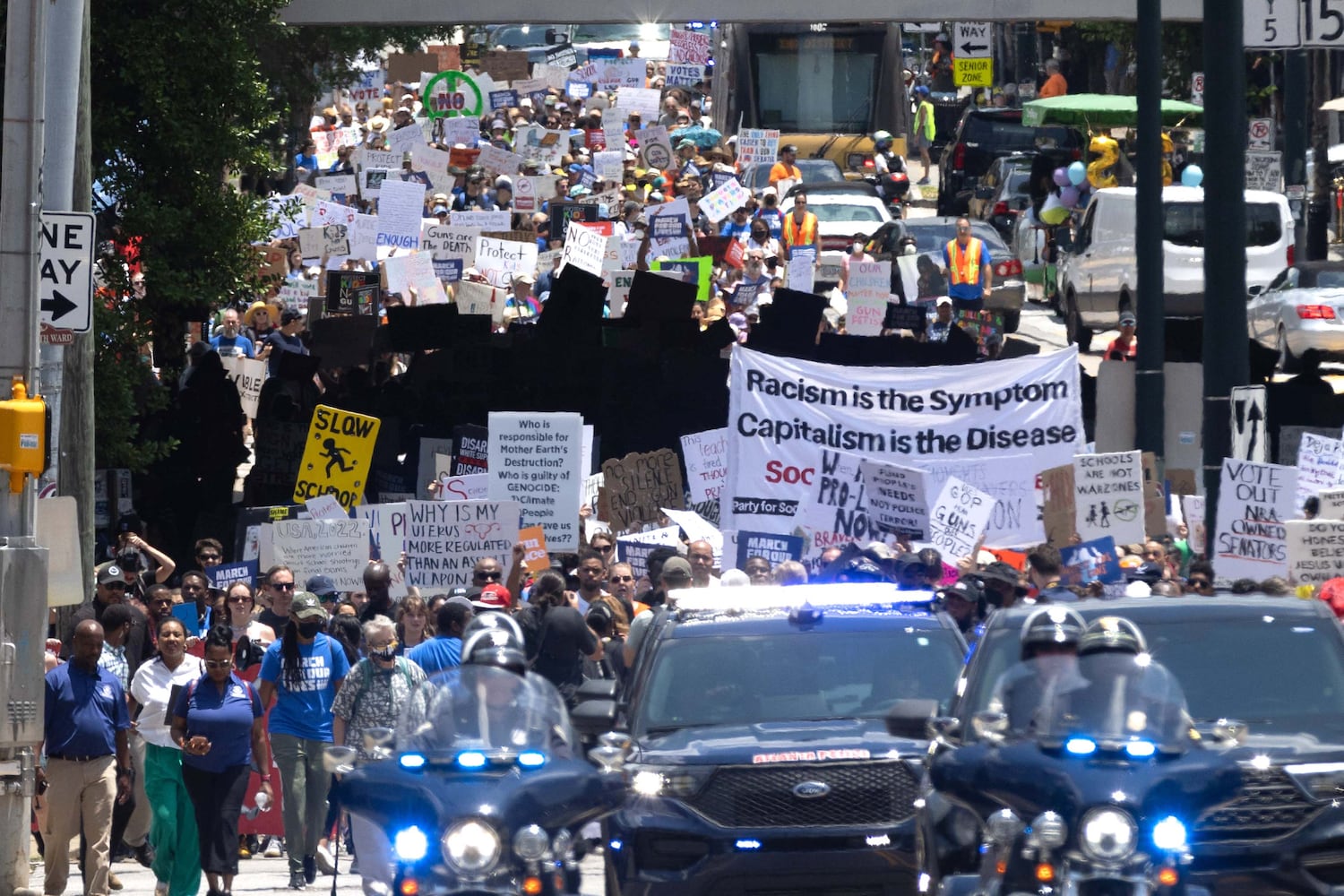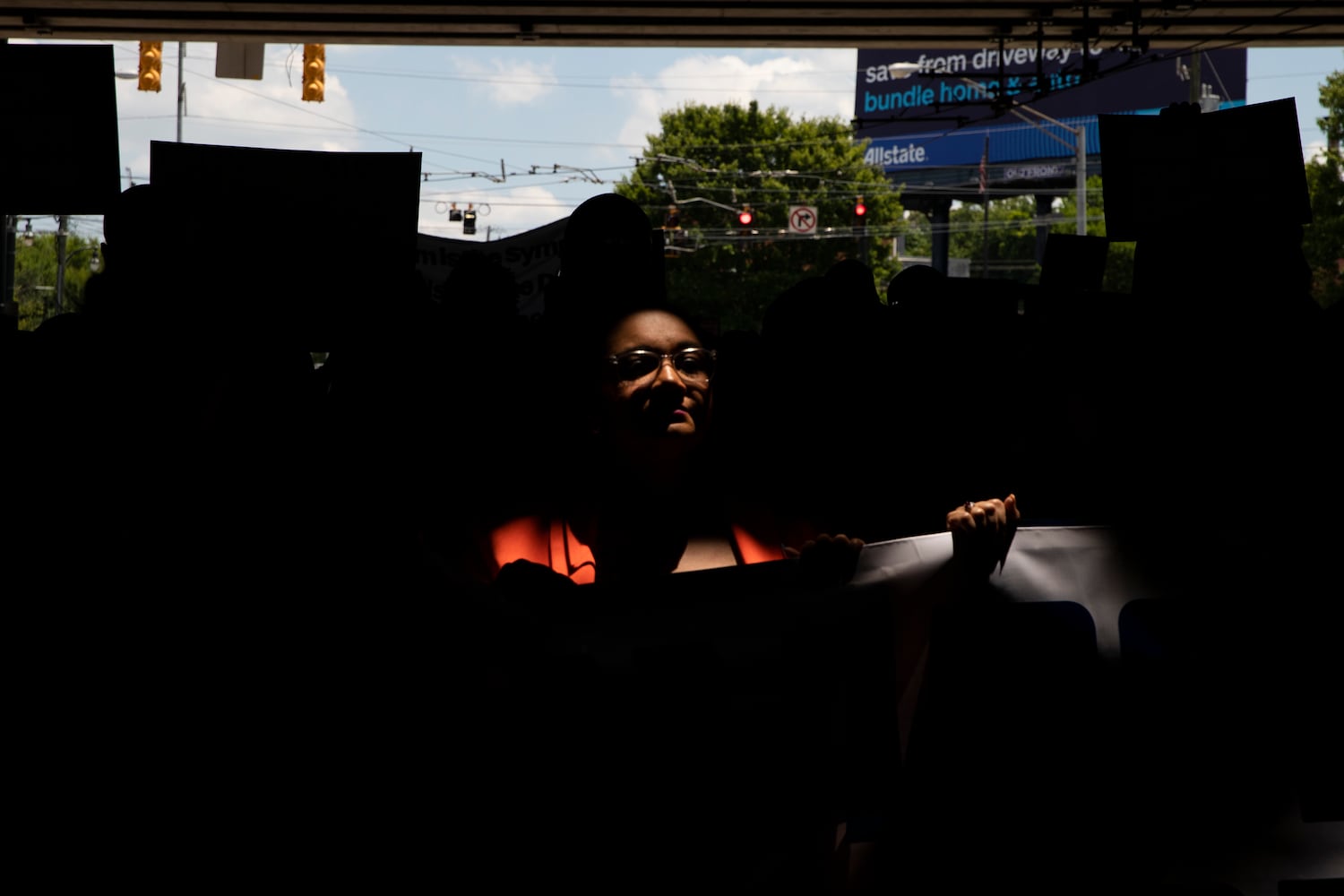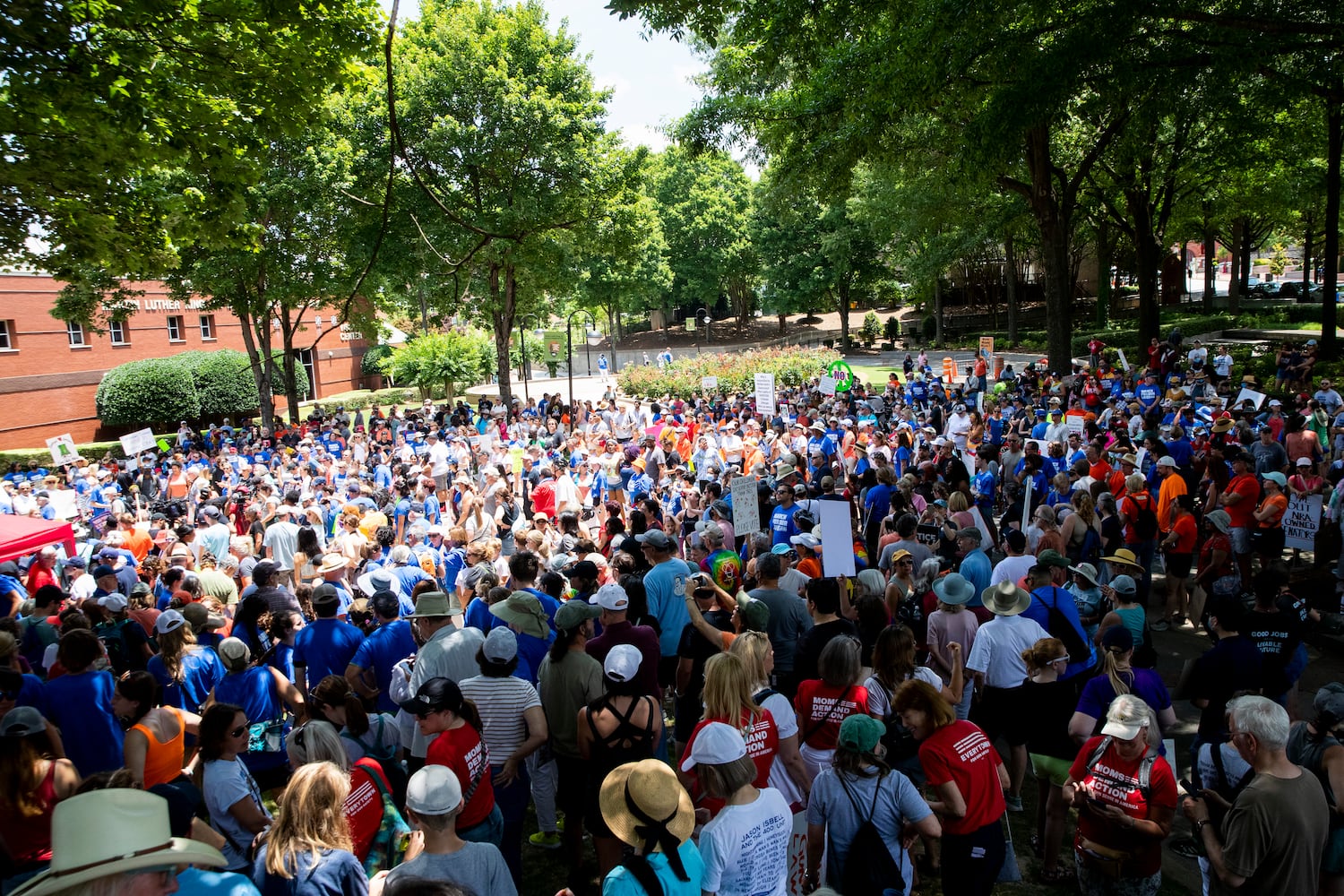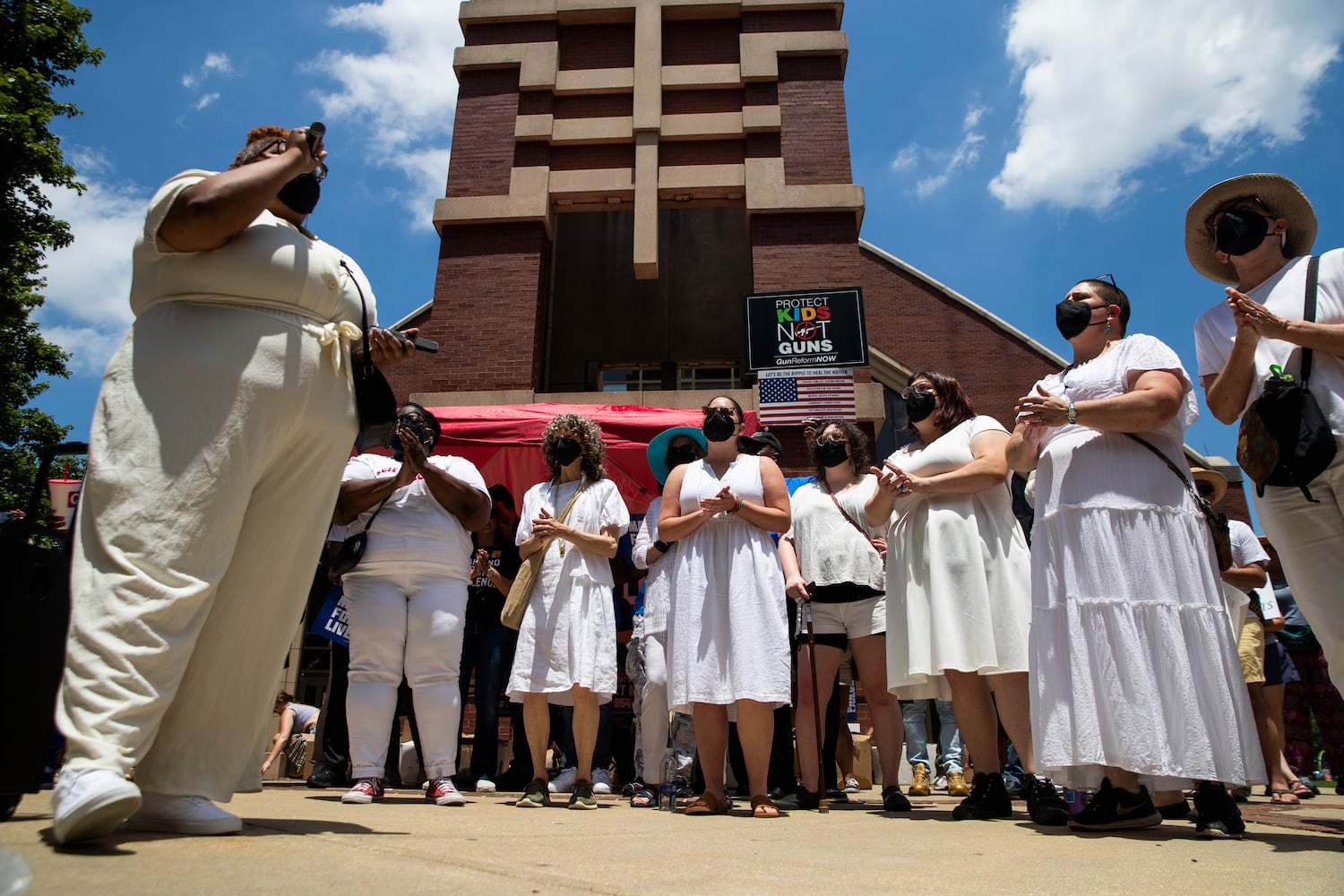A few days after the mass shooting in Texas, Gov. Brian Kemp arrived at a gathering of school security specialists in Athens and asked for a moment of silence for the 19 elementary school students and two teachers gunned down in cold blood.
He spoke to the school resource officers and administrators about how the thought of a massacre at a place of learning is one of his “heaviest concerns” and he touted $69 million in security grants and other funding for mental health resources.
What the Republican didn’t mention was any new effort to rein in access to guns. At campaign stops as he runs for a second term, Kemp takes the opposite approach, appealing to voters with promises of expanding Second Amendment rights.
His stance is not unique among Georgia Republicans. When Kemp campaigned for governor in 2018 with the now-famous shotgun ad, his stance mirrored that of his adversaries.
If anything, GOP positions on guns have hardened since then, infuriating Democrats and other supporters of gun control who participated in protests Saturday in Atlanta and cities around the nation to call for new restrictions.
The Republican-controlled Legislature passed a measure this year that allows Georgians to carry concealed handguns without first getting a license from the state, which Kemp signed to cheers at a Douglasville store where his daughter Lucy bought her first firearm.
And after another round of mass shootings, Republican leaders say they’re focused on ways to improve school security and mental health services rather than establishing new limitations on who can purchase or carry deadly weapons.
Credit: Bob Andres/AJC
Credit: Bob Andres/AJC
The lone exception was Lt. Gov. Geoff Duncan, a Republican who is headed for the exits after declining to run for a second term. He indicated he was open to a debate on new firearms regulations, though he won’t be in office when the next legislative session begins.
“Like an overwhelming majority of Americans, I am ready to have a conservative and comprehensive conversation about changing the trajectory of gun violence and mass shootings,” he told The Atlanta Journal-Constitution.
Second Amendment and second-graders
A call for gun restrictions is a key part of the election-year agenda for Democrats, who contend that Republican leaders are out of step with Republican voters when it comes to the debate over firearms.
An AJC poll in January showed most Georgians — including a majority of Republicans — opposed “permit-less carry” measures like the one Kemp signed into law in April. Other recent surveys indicate a majority of Georgians support new gun regulations.
That was the focus of demonstrations in Atlanta and across the nation Saturday calling for new gun control measures. Among those who joined the march was Tommie Campbell, who grew emotional as she spoke about the threat of another tragedy.
“I don’t want to be afraid for my children when they’re in college, but it happens on college campuses too,” said Campbell. “We just got to end this gun violence immediately.”
Credit: Miguel Martinez
Credit: Miguel Martinez
Gun restrictions are also at the center of a sharp divide in the race for governor, with Democratic nominee Stacey Abrams pledging to repeal recent laws that expand where Georgians can carry firearms if she’s elected.
“I don’t believe we should have guns everywhere. And while I don’t have an issue with responsible gun owners, we can’t figure out who they are if we don’t have background checks,” Abrams told dozens of high school graduates at a campaign rally this past week.
“It’s about making sure that we can protect the Second Amendment and protect second-graders in the state of Georgia,” she said.
‘Root causes?’
Not long ago, supporting gun restrictions was seen as a losing issue for Democrats in marquee races. But mass shootings have sharpened divisions as the electorate has become more polarized, said Andra Gillespie, an Emory University political scientist.
Pro-gun measures once considered to be in the far-right fringe have been pushed to the GOP mainstream by candidates jockeying for pole position in GOP primaries, even if it means alienating voters in November.
“There’s very little ground for Republicans who care about gun control to moderate their tone,” said Gillespie. “The political middle has shrunk considerably.”
That dynamic is on vivid display amid campaigning ahead of the June 21 runoffs, with Republican candidates for U.S. House seats competing to be the fiercest opponent of the gun control movement.
Credit: robert.andres@ajc.com
Credit: robert.andres@ajc.com
“It’s tragic what’s happened with the shooting recently at the school in Texas,” said Chris West, a Republican candidate in the 2nd Congressional District. “But we cannot give Democrats one opportunity — or RINOs, Republicans that will look for an opportunity — to infringe on our rights.”
The polarization means that even scaled-back measures such as red flag laws, which allow authorities to temporarily confiscate guns from people deemed by a judge to be dangerous, have failed to gain traction in Georgia.
A federal version of that measure authored by Democratic U.S. Rep. Lucy McBath passed the U.S. House last week, though the Senate is likely to pass a more modest version that offers money to states to implement the laws without requiring them to do so.
“For some reason my colleagues insist on doing nothing to reverse what is a tide of a failed policy,” said U.S. Rep. Hank Johnson, D-Lithonia.
Layla Shipman, an influential conservative organizer in Rome, hasn’t been surprised by the ongoing Republican resistance. The political focus, she said, should be on the “root causes” of mass shootings.
“We must invest in increased school security, funding for training and personnel to protect our children, and mental health and wellness resources” to recognize and address potential threats, she said.
The protesters who marched through Atlanta over the weekend served as a counterpoint. Waving a constellation of brightly colored signs — one read, “It’s not rocket science: More guns = more gun violence” — they demanded new restrictions before another tragedy.
“I want to live in a world where I don’t have to come to another march,” said John Vaughn, an Ebenezer Baptist Church pastor.
Staff Writer Mary Helene Hall contributed to this article.
Credit: Chris Day
Credit: Chris Day
About the Author
The Latest
Featured

